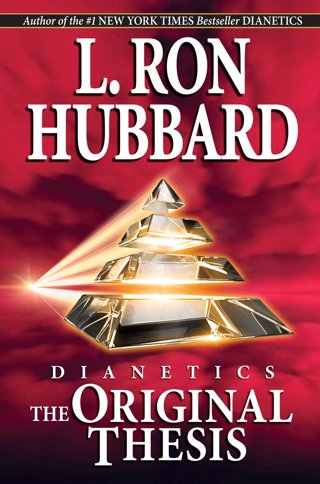Examine This Report on Dianetics
Wiki Article
The Greatest Guide To Dianetics
Table of ContentsThe 8-Second Trick For DianeticsAbout DianeticsThe Ultimate Guide To DianeticsWhat Does Dianetics Do?
I could not ever before not wish to obtain anything that enters your mind for you- if it was otherwise, I would not be sitting right here with you, doing this. I not only could never have a problem, or otherwise want to hear something that enters your mind for you, however I'm totally eager to know every idea, every thought, every image or feeling that emerges or materializes for you- do not ever before think or else, and if somehow you do, please just let me recognize! Occasionally, you may have a thought, and picture, concept or incident turn up that does not seem to answer the inquiry, or connect to it, yet nonetheless, constantly do inform me regarding it, and as we proceed, the relevance will certainly arise for you.This is inherent in the basis of handling, and the subject of this discussion: the fundamental duties of the counselor and the customer: The basic function of the therapist is, as opposed to "basic training", not to manage, which means to impose and/or inhibit, however to instead function from the basis of EMPOWERING THE CUSTOMER.

Fascination About Dianetics
John Mcmasters revealed this standard truth splendidly well in one of his talks on Power handling, wherein he clarifies exactly how he was asked what this "special flair" was that he had for giving such excellent sessions; he had to think of that for a minute, and identified that it was what he wasn't doing, along with what he was doing: he had not been reviewing, judging, computing, or actually, generating any thoughts, not to mention spoken expressions, after providing the command and while awaiting the PC to finish their solution to their complete satisfaction; he was, merely and only, being existing with the PC, and totally interested.The function of the counselor, showed; that was his "unique flair". I have had my very own experience which instructed me this well, really beforehand in the game. In 1982, having lately finished my training and teaching fellowship on New Era Dianetics, I was running this on a PC, and there was a point in the session where (being a little bit wet behind the ears not yet having lots of hours under my belt as an expert auditor) the PC appeared to be "taking too lengthy" to share anything vocally after I provided him a command.
This key ended up being one of the most beneficial contribution that John ever made to the topic of therapy or bookkeeping (Dianetics). In my modest viewpoint, it is the best contribution that any individual has actually ever before made to these subjectsthe application is totally non-judgemental, non-evaluative, and lacking any tip, advice or opinion.no preconditioned program for individuals, or 'degrees' that they must do
In Scientology we prided ourselves on not assessing for individuals. All that actually meant was that the auditor did not Vocally assess for the Computer in session.
The Best Guide To Dianetics

Any person that had ever before seen John audit could not help try this out yet see a distinct high quality in his auditing."The customer's basic role is to be there with the purpose of moving in the instructions of their spiritual objectives, and to freely and completely share and experience whatever materializes for them in answering the questions and carrying out the guidelines in the processing.
This is something to process as required. Additionally, people often have previous experience and/or brainwashing in auditing/processing which, in some means, and to some degrees, in fact misguides them right into perspectives, ideas and behavior patterns that prevent the full understanding of these functions, and so they will certainly have a tendency to prevent the expressing of what comes to mind, as in the examples offered over - Dianetics. * The initial, and probably leading examples of mis-indoctrination resulting in much less than completely smooth and efficient sessions, can be located in particular elements of the training regimens, or "TR's":"TR's" are usually a person's very first, or at least early, experience in Scientology, and while I will go on to discuss what I see as the imperfections in idea and method, however, tend to be substantially therapeutic, done as they are given (Hubbard insists that "TR's are not processing, they are training", but factually, they are both great post to read handling AND training)
Alan Walter made similar observations, and improved these with his "Existence Processes". There is no "flunking", and no denial of the reality of this being handling. The focus, as it needs to be, gets on experiencing the other individual's presence. All the symptoms which obtain a "flunk" in doing "TR-0" are simply the being's initiatives to resist the various other person's presence, and rather than being pestered and pestered with "Flunk", which imposes "failing!" on the being, one just requires to be urged to "stick their feet in the water a little much deeper", to significantly refurbish their capacity and determination to completely share and experience "being here", or "presence", with others.
The Ultimate Guide To Dianetics

Report this wiki page